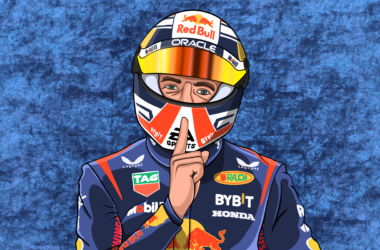On Dec. 20, the Féderation Internationale de l’Automobile (FIA) updated the International Sporting Code––a set of common regulations that apply to all Formula racing series––to ban drivers from making personal, political, and religious statements without permission from the FIA.
The FIA attempted to justify the ban by citing the organization’s commitment to upholding a principle of neutrality––the principle of political neutrality that is enshrined in the International Olympic Committee Code of Ethics. With this ban comes the threat that all drivers who do not maintain a “neutral” stance on personal, political, or religious matters risk breaching FIA regulations. Punishments for breaching the International Sporting Code regulations vary from fines to not being able to compete in a race.
The FIA’s ban comes after drivers such as Sebastian Vettel and Lewis Hamilton have begun to use their platform on race weekends to make political statements and speak out about social injustices. In 2020, after winning the Tuscan Grand Prix, Hamilton wore a shirt on the podium that read, “Arrest the cops who killed Breonna Taylor.” Following Hamilton’s statement, the FIA cracked down on acts of protest, ordering drivers to keep their race suits zipped up for the entirety of the podium ceremony and post-race interviews.
By defining the confines within which drivers can share their political, religious, or personal views, the FIA is anything but neutral. The organization limits drivers’ freedom of speech and obliges them to comply with the FIA’s own political agenda.
This move by the FIA reveals the organization’s hypocrisy. The new regulations serve to further muzzle racers, already a common practice within the FIA. In 2020, the FIA launched the #WeRaceAsOne initiative in an effort to denounce global inequalities. However, #WeRaceAsOne ceremonies were called off in 2022 as the FIA decided to “gesture towards action.”
Predictably, the FIA has failed to implement any direct action to meaningfully increase diversity within the sport. While silencing the voices of its own racers, the implementation and subsequent eradication of the #WeRaceAsOne initiative only demonstrates the organization’s refusal to commit to actual change. Rather than supporting their athletes’ fights against the global inequalities the organization claims to stand against, the FIA repeatedly chooses to condemn their actions and silence their voices.
The FIA’s position on political statements is unsurprising as the sport’s dedication to promoting neutrality is regularly weaponized as a tool to silence the voices of its racers, such as Vettel or in Hungary or Hamilton in Tuscany. By imposing silence through new regulations, the FIA is strengthening its stance regarding the separation of sports and politics.
Moreover, the ban allows the FIA to continue to allow races in countries with widespread human rights violations without backlash from its drivers. For example, Sebastian Vettel and others were reprimanded by the FIA for wearing a shirt with the message “Same Love” at the Hungarian Grand Prix to protest Hungarian anti-LBTQIA+ laws.
Several Grand Prix host countries accused of human rights violations also partake in sportswashing—or hosting important sporting events solely to improve their international reputation. In the case of Bahrain, the country signed a contract with Formula 1 that guarantees races will be held there until 2036 despite the reported ongoing human rights abuses. Thus, the FIA prefers to uphold the principle of “neutrality” rather than promoting the protection of human rights as enshrined in Article 1.2 of the Sporting Code.
But in practice, the FIA’s new legislation serves to prevent drivers from publicly denouncing the organization’s agenda. By slashing freedom of speech, the FIA makes it clear that their “efforts” towards equality and inclusivity are a smoke screen, washing out the dark practices that continue within the sport.









